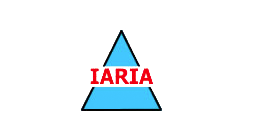 A scientific paper entitled “Enabling collaborative, data-driven intelligence for the Maritime Sector” has been co-authored by UBITECH and is presented at the 12th International Conference on Mobile Ubiquitous Computing, Systems, Services and Technologies (UBICOMM 2018), hosted between November 18-22, 2018 in Athens, Greece – receiving the Best Paper Award. In this paper, Dimitris Miltiadou, Stamatis Pitsios, Kostas Perakis and their co-authors propose a big data-enabled platform that facilitates and incentivizes businesses active in the maritime sector to share their (previously isolated) data, towards building a data foundation that will disrupt the maritime industry, allowing the implementation of cross-sectorial data driven services that will aid maritime organisations to modernise their everyday activities and come up with added value accruing from previously raw data that seemed useless or irrelevant. Thus, the platform will allow data-driven decisions based on diverse data resources, coming from public and private providers and enable new business models that will secure sustainability and transparency in organisations’ operations.
A scientific paper entitled “Enabling collaborative, data-driven intelligence for the Maritime Sector” has been co-authored by UBITECH and is presented at the 12th International Conference on Mobile Ubiquitous Computing, Systems, Services and Technologies (UBICOMM 2018), hosted between November 18-22, 2018 in Athens, Greece – receiving the Best Paper Award. In this paper, Dimitris Miltiadou, Stamatis Pitsios, Kostas Perakis and their co-authors propose a big data-enabled platform that facilitates and incentivizes businesses active in the maritime sector to share their (previously isolated) data, towards building a data foundation that will disrupt the maritime industry, allowing the implementation of cross-sectorial data driven services that will aid maritime organisations to modernise their everyday activities and come up with added value accruing from previously raw data that seemed useless or irrelevant. Thus, the platform will allow data-driven decisions based on diverse data resources, coming from public and private providers and enable new business models that will secure sustainability and transparency in organisations’ operations.
In particular, the proposed platform will combine data of different velocity, variety and volume under an inter-linked, trusted, engine to produce a services repository of value and veracity back to the participants and local communities. The objective of our work is to capitalise on existing modern technological breakthroughs in the areas of the big data driven economy, and roll out a completely new value chain of interrelated data streams coming from diverse sec-tors and languages and residing on cross technology innovations being delivered in different formats (as well in different states, e.g. structured/ unstructured, real-time/ batch-es) in order to revolutionise the way maritime-related industries work, showcasing a huge and realistic economic, societal and environmental impact that is being achieved by introducing an economy of knowledge into a traditional sector which does not operate in an orchestrated manner and is rather fragmented.
In the business Level, the proposed platform enables different stakeholders in a collaborative but also flexible services marketplace for maritime big data by providing them with the tools to gain business logic capabilities on these data; Thus, it helps them to make data-driven decisions based on diverse data resources, coming from well-trusted providers; And, it enables new business models that will secure sustainability and transparency in organisations operations.
In the scientific Level, it will allow data analysts to automate many data processing processes and existing models in order to create such maritime services and applications. Provide them with ready-to-use data and allow them focus on building better models and algorithms without caring on finding those data; And reduce the barriers of analysing maritime data, thus giving incentives for running research tasks (i.e. indications of causality) to stakeholders outside the academia (e.g. NGOs, students, local communities, policy makers).


